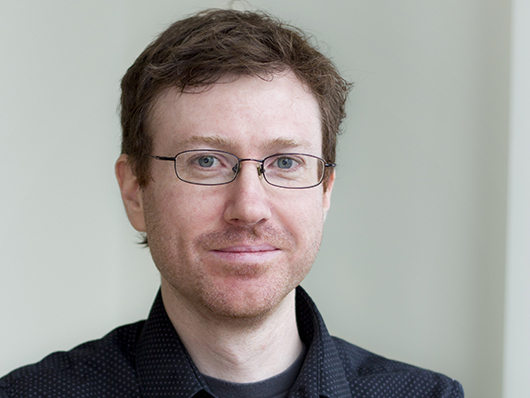Oculus VR Opens Seattle Office With Former Valve VR Talent
Oculus VR has a new chief architect.
Oculus VR announced on Tuesday that Atman Binstock, one of the lead engineers behind Valve Software's VR project, is now the company's new chief architect. He will be leading the new Oculus VR research and development office based in the Seattle area.
"Atman and the Valve VR team helped prove simulator sickness could be overcome and a true sense of 'presence' could be delivered. He helped set the bar for consumer virtual reality and is dedicated to making sure Oculus delivers the highest quality VR experience," states the company's blog.
Binstock originally joined Valve thanks to Michael Abrash, who convinced Binstock to work on the studio's AR and VR efforts.
"Michael convinced me that this was basically the myth of technological inevitability: the idea that because technologies were possible, they would just naturally happen," Binstock writes. "Instead, the way technological revolutions actually happen involve smart people working hard on the right problems at the right time. And if I wanted a revolution, and I thought I was capable of contributing, I should be actively pushing it forward."
"Two years later, we've solved some of the basic problems, proven great VR is not only possible but truly magical, and now I want to bring it to the world. I'm incredibly excited and humbled by the opportunity — We're just scratching the surface of what's possible, and I can't wait to discover what's next!" Binstock concludes.
Prior to Valve, Binstock led several projects at top companies in the industry, including RAD, DICE, and Intel.
Binstock follows John Carmack, who left id Software to become Oculus VR's Chief Technical Officer. Carmack took on the role back in August 2013, but didn't leave id Software until November. He works out of the Dallas, Texas office, while the main Oculus VR team resides in Irvine, California.
Get Tom's Hardware's best news and in-depth reviews, straight to your inbox.

Kevin Parrish has over a decade of experience as a writer, editor, and product tester. His work focused on computer hardware, networking equipment, smartphones, tablets, gaming consoles, and other internet-connected devices. His work has appeared in Tom's Hardware, Tom's Guide, Maximum PC, Digital Trends, Android Authority, How-To Geek, Lifewire, and others.
-
11796pcs ReplyThis shouldn't be an issue if you are a serious PC gamer, I have 7 Tb of space on 4 different hard drives including where my OS is on the main drive a 512Gb SSD. Its 2014 people buy more space, games are getting larger all the time.
I don't think you understand the complete stupidity of uncompressed audio. It takes almost no CPU power to decompress lossy MP3 and for 99%+ of people, the difference between uncompressed WAV and 320 kbps compressed MP3 is inaudible. The difference is size is huge. This: "a two-core machine would dedicate a huge chunk of one core to just decompressing audio" is a lie. Also, a Tb and a Gb is not the same as a TB and a GB. What you actually wrote in your comment was that you have a 64GB SSD and 875GB over four different hard drives.
